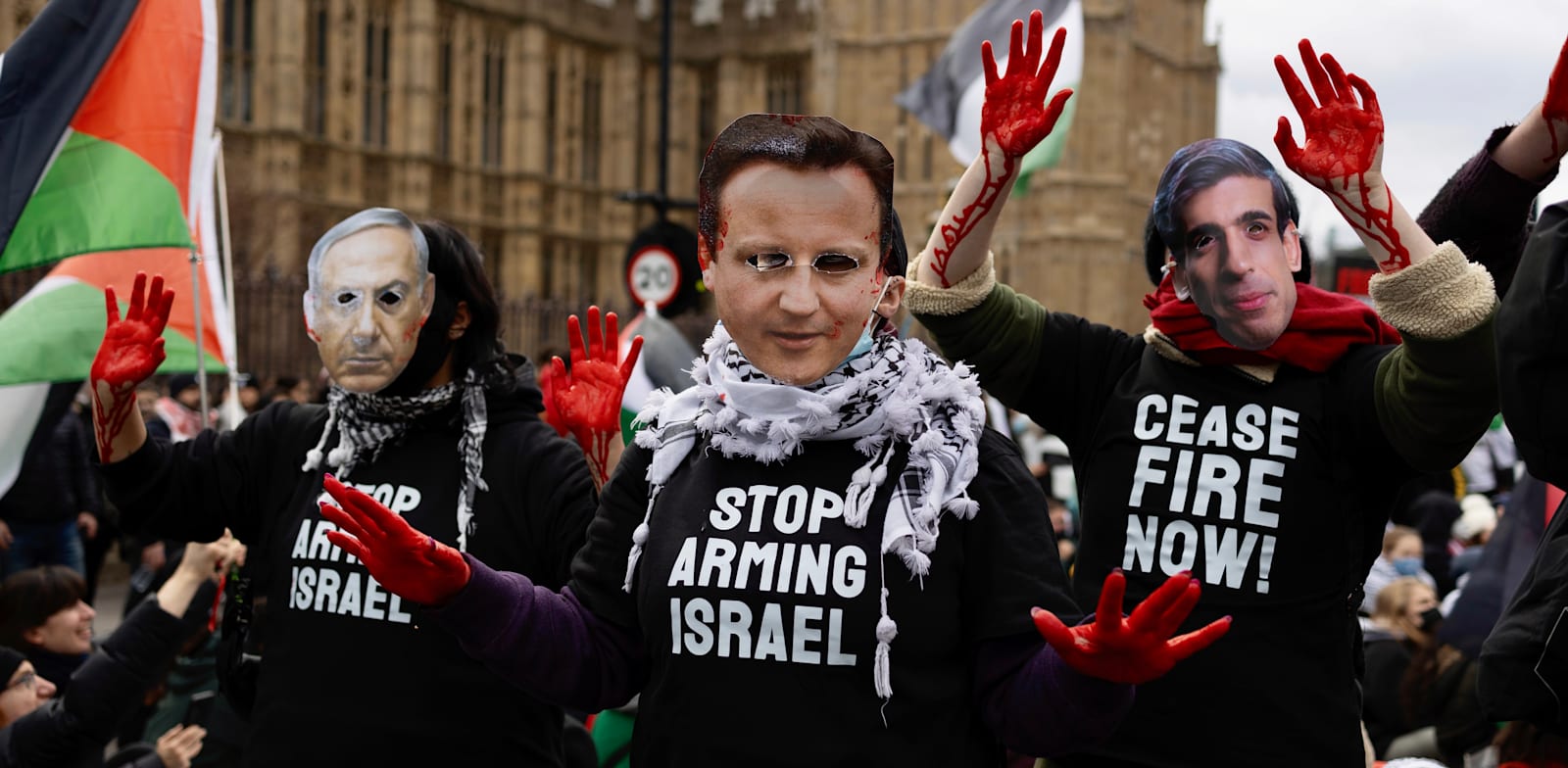After the October 7 terrorist attack, the British government pledged unqualified support for Israel when it went to war in Gaza. British Prime Minister Rishi Sonak arrived in Israel a few days after the attack, bringing weapons and military equipment for the IDF in a transport plane. He declared “unlimited support for Israel in the face of evil.” However, six months later, British promises have dwindled, with threats of imposing an arms embargo on Israel if it invades Rafah.
The change in the British position is attributed to criticism of Israel for the humanitarian situation in Gaza, especially following a surprise visit by Sonak to press the issue during a meeting with Minister Benny Gantz in London. The shift became evident during a vote in the UN Security Council, where the British ambassador supported a resolution for an immediate humanitarian ceasefire in Gaza without condemning Hamas for the atrocities of October 7.
The change in the British stance towards Israel is also influenced by a shift in leadership within the Foreign Ministry. David Cameron, known for his critical views on Israel, replaced the pro-Israeli James Calverley as Prime Minister. Cameron has been vocal about the humanitarian situation in Gaza and has hinted at the possibility of halting arms exports to Israel. This change of direction aligns with public sentiment in Britain, which largely supports the Palestinian cause.
Despite historical support for Israel within the Conservative Party, recent actions by the British government, such as voting alongside Arab countries for a ceasefire in Gaza, have drawn internal criticism. The British Foreign Office is now considering whether Israeli military activities in Gaza violate international law, which could lead to a cancellation of arms export licenses to Israel. This new approach towards Israel signals a departure from past policies and reflects changing attitudes towards the conflict in the Middle East in Britain.
